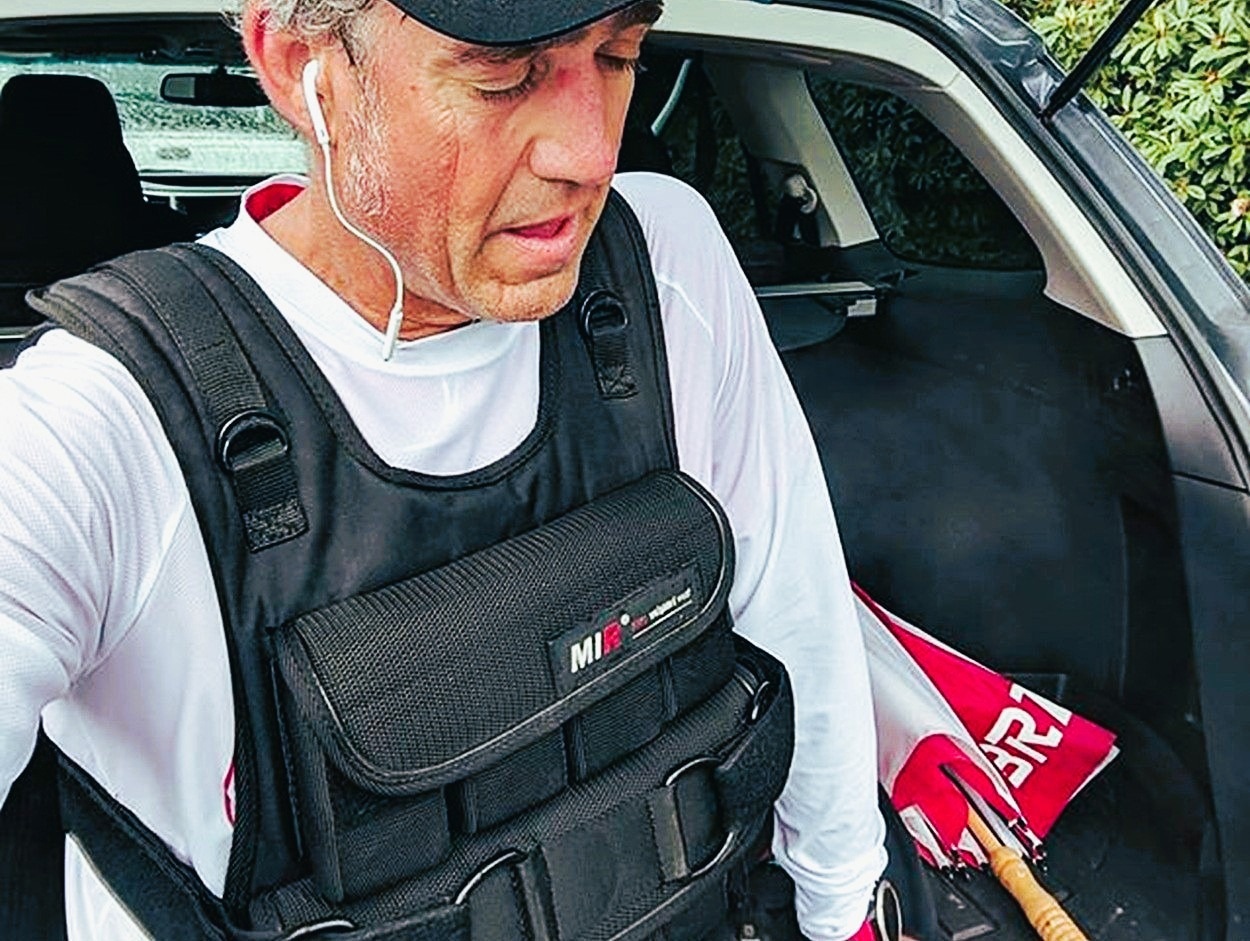A pilot study suggests that adding gravitational load via a weighted vest during dieting may help older adults maintain weight loss by preserving metabolism, hinting at a novel biological pathway for long-term weight control.

Study: Does weighted vest use during weight loss influence long-term weight loss maintenance? A pilot study in older adults living with obesity and osteoarthritis. Image Credit: Martin Criminale / Flickr
In a recent article published in the International Journal of Obesity, researchers investigated whether wearing a weighted vest over six months during a calorie restriction intervention to promote weight loss could influence longer-term weight regain among older adults with obesity. They found that participants wearing weighted vests lost similar amounts of weight over the six months but regained only half of the lost weight over 24 months, while those who did not wear the vests regained all of it.
Background
Obesity is a considerable public health concern, particularly among older adults. Weight loss through lifestyle-based interventions, which typically result in 8–10% weight loss in a year, is the standard treatment but often fails to maintain long-term results. This failure is mainly due to biological changes following weight loss, such as reduced energy expenditure and increased hunger due to hormonal shifts.
Recently, researchers have considered gravitational loading, or how body weight exerts force on the skeleton, as a factor in weight regulation. This idea is the basis of the “gravitostat” hypothesis, which suggests that bone cells in the lower body detect body weight changes and send signals to the brain to regulate appetite and fat storage. While most evidence comes from animal studies, one human study showed that increasing gravitational load can lead to small but statistically significant losses in fat mass and body weight over a short period, although the magnitude of weight loss in that study was less than what would be considered clinically meaningful.
About the study
This study analyzed data collected during follow-ups of a randomized controlled trial that assessed whether wearing a weighted vest during a six-month weight loss intervention is feasible and beneficial for older adults with obesity and arthritis.
The original trial randomized participants to either a calorie-restricted diet with weighted vest use (20 participants) or a diet alone (17 participants). For this pilot analysis, 18 participants (two groups of nine people), who had finished the six-month program, returned voluntarily for a follow-up over 24 months.
All participants followed the dietary plan that was delivered between 1100 and 1300 kcal daily, as well as weekly nutrition and behavioral counseling. The treatment group wore an adjustable weighted vest for at most 10 hours daily during active periods. The vest’s weight increased weekly to replace lost body weight, not exceeding 15% of baseline weight. Participants’ compliance was self-reported weekly. After the six-month intervention, participants were not contacted or monitored during the follow-up period, except for being invited to return for the 24-month assessment. They did not receive further study protocol or support after the intervention period.
Baseline demographics and anthropometric measures, including body weight, resting metabolic rate (RMR), and body composition, were collected by blinded staff and assessed at baseline, after 6 months, and after 24 months. RMR was assessed using indirect calorimetry after 12 hours of fasting and no recent exercise.
Data analyses included mixed models and Pearson correlations to assess changes over time and associations between RMR changes and weight regain.
Findings
This pilot study involved older adults with an average age of 70.4 years, 83.3% of whom were female, with obesity, who underwent a six-month weight loss intervention, followed by an 18-month follow-up.
Both groups achieved similar and significant weight loss during the initial six months; those who wore the vest lost an average of 11.2 kg, while those who did not lost 10.3 kg on average. Approximately one-quarter of this weight loss comprised lean mass.
After 24 months, the group wearing vests regained only about half the lost weight, with a net loss of 4.8 kg from baseline, while the group not wearing vests reverted to baseline weight. Lean mass remained lower in the group wearing vests at 24 months, whereas it returned to baseline in those who did not.
Notably, RMR decreased less in the group wearing vests at six months, by 16.3 kcal per day, compared to the control group, which showed a decrease of 237.5 kcal per day. Both groups’ RMR reverted to baseline by 24 months.
A modest inverse correlation was observed between RMR reduction during active weight loss and weight regain during follow-up, suggesting that preserved RMR may support sustained weight loss. However, this association did not reach statistical significance (r = −0.39, p = 0.11).
Conclusions
This study suggests that wearing a weighted vest during intentional weight loss may help reduce long-term weight regain, possibly by preserving resting metabolic rate. While both groups initially lost similar amounts of weight, the group wearing vests maintained more weight loss at 24 months. The findings support emerging research on gravitational loading as a factor in weight regulation.
Key strengths include the novel intervention, randomized controlled design, and extended follow-up period. However, the study’s small sample size and reliance on a convenience sample for the 24-month follow-up limit generalizability. Additionally, the study lacked detailed data on posture (such as standing vs. sitting) and dietary intake during vest wear, which may have affected outcomes.
Overall, the pilot findings are promising and suggest that gravitational loading may help sustain weight loss in older adults. Larger, more comprehensive trials are needed to confirm these results and further explore mechanisms such as osteocyte signaling and appetite regulation.
Journal reference:
- Does weighted vest use during weight loss influence long-term weight loss maintenance? A pilot study in older adults living with obesity and osteoarthritis. DeLong, C., Nicklas, B.J., Beavers, D.P., Fanning, J., Beavers, K.M. International Journal of Obesity (2025). DOI: 10.1038/s41366-025-01795-5, https://www.nature.com/articles/s41366-025-01795-5